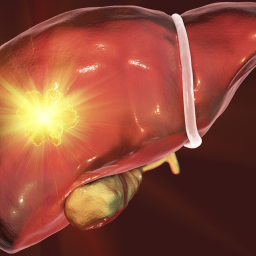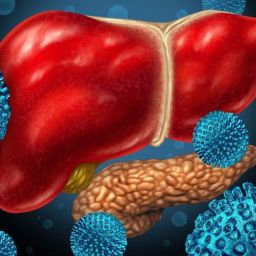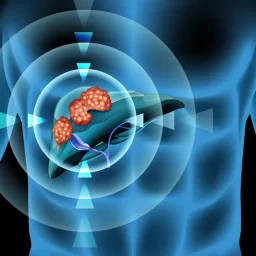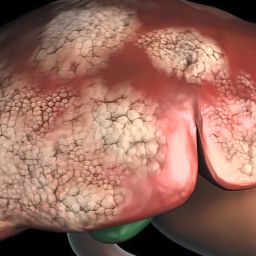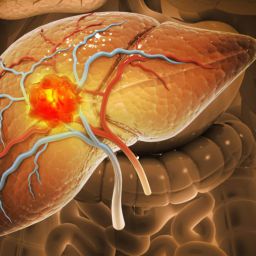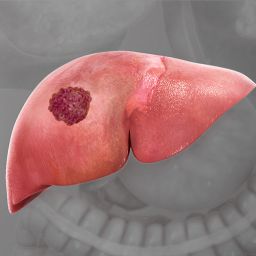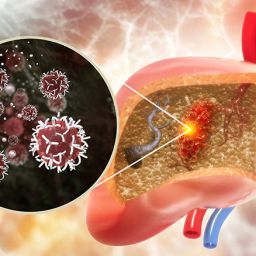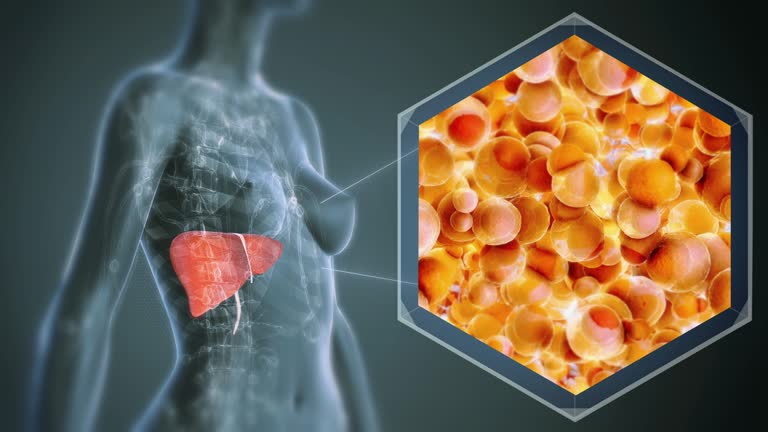
1. The Role of Nutrition in Liver Cancer Management
Before diving into specific foods, it’s important to understand why nutrition matters so much in liver cancer management. A well-rounded, nutrient-dense diet can help cancer patients in several ways, such as:
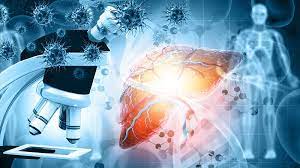
- Supporting the immune system: Proper nutrition strengthens the immune system, enabling the body to fight infections and respond better to cancer treatments like chemotherapy.
- Preventing malnutrition: Liver cancer patients often struggle with weight loss and malnutrition, which can impair recovery. Nutrient-dense foods help maintain body weight and muscle mass.
- Managing side effects: Treatments for liver cancer, such as chemotherapy or radiation, can lead to side effects like nausea, vomiting, and fatigue. Certain foods may help alleviate these symptoms.
- Promoting liver health: A healthy diet can support liver function, helping it detoxify the body and perform other critical tasks even in the presence of cancer.
2. General Guidelines for a Liver Cancer-Friendly Diet
When it comes to liver cancer, a balanced, anti-inflammatory diet is key. Here are some general dietary guidelines that can help individuals with liver cancer:
2.1 Focus on Lean Protein
Protein is essential for tissue repair and immune function, both of which are vital during cancer treatment. However, because the liver processes protein, it’s essential to consume the right types of protein, particularly lean proteins that are easier for the body to digest and absorb.
- Recommended proteins: Skinless poultry, lean cuts of beef, fish, eggs, and plant-based proteins like beans, lentils, and tofu.
- How it helps: Lean protein helps maintain muscle mass and supports the healing process after surgery or other treatments.
2.2 Choose Whole Grains
Whole grains are an excellent source of complex carbohydrates, which provide the body with slow-releasing energy. They also contain fiber, which is important for digestive health, especially for those experiencing side effects like constipation from treatment.
- Recommended whole grains: Brown rice, quinoa, barley, whole wheat bread, and oatmeal.
- How it helps: Whole grains help stabilize blood sugar levels and provide essential nutrients that the body needs to combat fatigue and maintain strength.
2.3 Include Healthy Fats
Fat is an important energy source, but not all fats are created equal. It’s essential to consume healthy fats, such as monounsaturated and polyunsaturated fats, that are less likely to contribute to inflammation.
- Recommended healthy fats: Avocados, olive oil, nuts, seeds, and fatty fish like salmon and mackerel, which are high in omega-3 fatty acids.
- How it helps: These healthy fats provide anti-inflammatory benefits and help support heart health, which is crucial for cancer patients undergoing treatment.
2.4 Stay Hydrated
Proper hydration is essential for liver cancer patients, as it helps prevent dehydration, aids digestion, and supports the liver’s detoxification processes.
- Recommended fluids: Water, herbal teas, diluted fruit juices, and soups.
- How it helps: Staying hydrated is especially important for individuals undergoing chemotherapy, which can lead to dehydration due to nausea, vomiting, and diarrhea.
2.5 Consider Smaller, Frequent Meals
Patients with liver cancer may experience a reduced appetite, especially during chemotherapy. In these cases, it’s important to focus on eating smaller, more frequent meals throughout the day rather than three large meals.
- How it helps: Smaller meals are easier to digest, especially for those with limited appetite or nausea. This approach helps ensure patients get enough calories and nutrients throughout the day.
3. Foods That Are Beneficial for Liver Cancer Patients
Certain foods contain compounds that may help support liver function and may be particularly beneficial for individuals with liver cancer. The following foods are highly recommended:
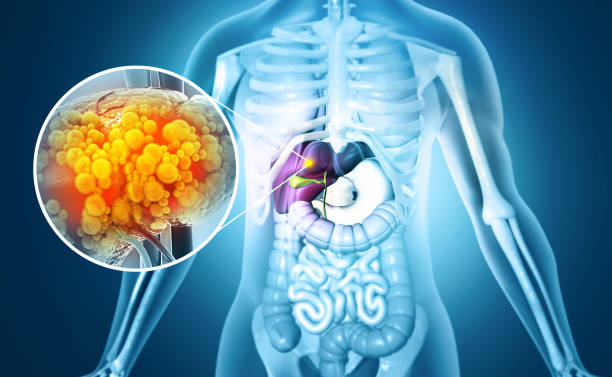
3.1 Cruciferous Vegetables
Cruciferous vegetables, such as broccoli, cauliflower, Brussels sprouts, and cabbage, are rich in antioxidants and fiber. These vegetables contain compounds like sulforaphane, which have been shown to support liver detoxification processes and reduce inflammation.
- How it helps: The antioxidants in these vegetables can help protect liver cells from damage caused by free radicals, while their fiber content aids digestion and supports liver function.
3.2 Leafy Greens
Leafy greens such as spinach, kale, and Swiss chard are packed with vitamins, minerals, and antioxidants, which are crucial for supporting the immune system. They are also high in fiber, which can help prevent constipation, a common side effect of cancer treatments.
- How it helps: The chlorophyll in leafy greens supports detoxification and can help reduce inflammation in the body, which is particularly important for those with liver cancer.
3.3 Berries
Berries like blueberries, strawberries, and raspberries are rich in antioxidants, which protect the liver from oxidative stress and support overall health. They also contain vitamin C, which boosts the immune system.
- How it helps: Antioxidants in berries may help reduce inflammation, protect liver cells from damage, and support immune health.
3.4 Garlic
Garlic has long been recognized for its medicinal properties. It contains compounds such as allicin, which may help reduce inflammation and enhance the liver’s detoxifying abilities.
- How it helps: Garlic supports liver health by increasing the production of enzymes that assist in detoxification. It also has antimicrobial properties that help fight infections.
3.5 Turmeric
Turmeric, and its active compound curcumin, is a powerful anti-inflammatory agent that can help reduce inflammation in the liver. Studies have shown that curcumin may inhibit the growth of liver cancer cells.
- How it helps: Curcumin may offer protective effects against liver cancer and help reduce the risk of liver damage caused by chronic inflammation.
3.6 Green Tea
Green tea contains catechins, which are potent antioxidants that can help protect liver cells from damage. Drinking green tea regularly may have liver-protective effects and promote overall liver health.
- How it helps: The catechins in green tea can help reduce the oxidative stress in the liver, potentially decreasing the risk of further liver damage.
4. Foods to Avoid During Liver Cancer Treatment
While certain foods are beneficial, others can exacerbate liver problems or interfere with cancer treatment. These should be avoided or minimized:
4.1 Alcohol
Alcohol is extremely taxing on the liver and can worsen liver function in individuals with liver cancer. Even small amounts of alcohol can lead to inflammation and liver damage.
- Why to avoid it: Alcohol interferes with liver function and can exacerbate cancer progression. It may also interact with medications used in cancer treatment.
4.2 Processed and Fatty Foods
Foods that are high in saturated fats and trans fats, such as fast food, fried foods, and processed meats, should be limited. These foods can increase inflammation and contribute to liver damage.
- Why to avoid them: High-fat, processed foods can increase the burden on the liver, impair its function, and promote inflammation in the body.
4.3 High-Sodium Foods
Excessive sodium can lead to fluid retention and exacerbate symptoms like swelling and ascites (fluid buildup in the abdomen), which are common in liver cancer patients.
- Why to avoid them: High-sodium foods, such as canned soups, processed meats, and salty snacks, can worsen these symptoms.
4.4 Sugary Foods and Refined Carbs
Foods high in refined sugars and carbohydrates can lead to insulin resistance and increase the risk of non-alcoholic fatty liver disease (NAFLD), which can further damage the liver.
- Why to avoid them: These foods contribute to weight gain and fatty liver, and they may worsen liver function.
5. Managing Symptoms and Side Effects of Treatment
Cancer treatments like chemotherapy and radiation can bring about various side effects, such as nausea, vomiting, fatigue, and appetite loss. Here are some strategies to manage these symptoms through diet:
- For nausea: Eating small, frequent meals and avoiding greasy, spicy foods can help alleviate nausea. Ginger and peppermint may also be helpful.
- For fatigue: Foods rich in iron (like spinach and legumes) and those high in vitamin B12 can help combat fatigue.
- For appetite loss: Soft, nutrient-dense foods like smoothies or soups may be easier to tolerate if solid food is unappealing.
Nutrition plays a pivotal role in supporting the health of individuals with liver cancer. A diet rich in lean proteins, healthy fats, whole grains, and nutrient-dense fruits and vegetables can help manage the symptoms of liver cancer, support the immune system, and promote recovery during cancer treatments.
While liver cancer patients should follow general healthy eating guidelines, they should also tailor their diet to their specific needs and preferences. A registered dietitian or nutritionist with experience in cancer care can provide personalized advice to ensure that dietary choices support both cancer treatment and overall well-being.
By choosing the right foods and making informed dietary choices, individuals with liver cancer can enhance their quality of life, improve their energy levels, and possibly even contribute to better treatment outcomes.

